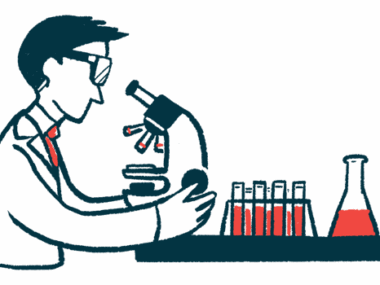Nemvaleukin plus Keytruda fails in Phase 3 trial in ovarian cancer
Trial stopping after no survival benefit seen for platinum-resistant disease
Written by |

Interim data from a Phase 3 trial failed to show that a combination of nemvaleukin, an experimental immune-modulating therapy, and Keytruda (pembrolizumab) could outperform standard chemotherapy in extending survival with platinum-resistant ovarian cancer.
Based on the lackluster findings, nemvaleukin’s developer Mural Oncology is ending the clinical trial early and stopping work on nemvaleukin in platinum-resistant ovarian cancer.
“We are disappointed for ovarian cancer patients desperately lacking new treatment options. There has been a great deal of work across the industry in [ovarian cancer], yet there are still few treatment options that improve survival in this very difficult-to-treat tumor type,” Caroline Loew, PhD, CEO of Mural Oncology, said in a company press release.
Nemvaleukin and Keytruda help immune system to attack cancer cells
Both nemvaleukin and Keytruda are designed to trigger the immune system to attack and destroy cancer cells. Nemvaleukin specifically works by mimicking the activity of interleukin-2, a signaling molecule that normally tells immune cells to go on the offensive. Meanwhile, Keytruda works by blocking signals used by cancer cells to hide from the immune system. Keytruda is approved to treat different types of cancer, but not ovarian cancer.
The Phase 3 ARTISTRY-7 clinical trial (NCT05092360) enrolled 456 women with ovarian, fallopian tube, or primary peritoneal cancer that was resistant to platinum-based chemotherapy. Most participants were randomly assigned to treatment with either nemvaleukin plus Keytruda, or to their doctor’s choice of available chemotherapies. A smaller proportion of patients received either nemvaleukin or Keytruda as single agents.
The global study’s main goal was to see if the nemvaleukin and Keytruda combination was better than chemotherapy at improving overall survival. The interim analysis was conducted after 219 events, accounting for 77% of the total needed for a statistically robust final analysis.
Median overall survival was 10.1 months for patients given nemvaleukin and Keytruda, and 9.8 months for patients on chemotherapy, interim data showed.
Based on these findings, Mural judged it highly unlikely that the trial would meet its goal, and pulled the plug on the program.
Nemvaleukin still is being developed as a potential treatment for melanoma, a type of skin cancer. A Phase 3 trial in melanoma patients is ongoing, with results expected later this year. Once that information is available, Mural “will assess all available data to inform our next steps,” Loew said.




